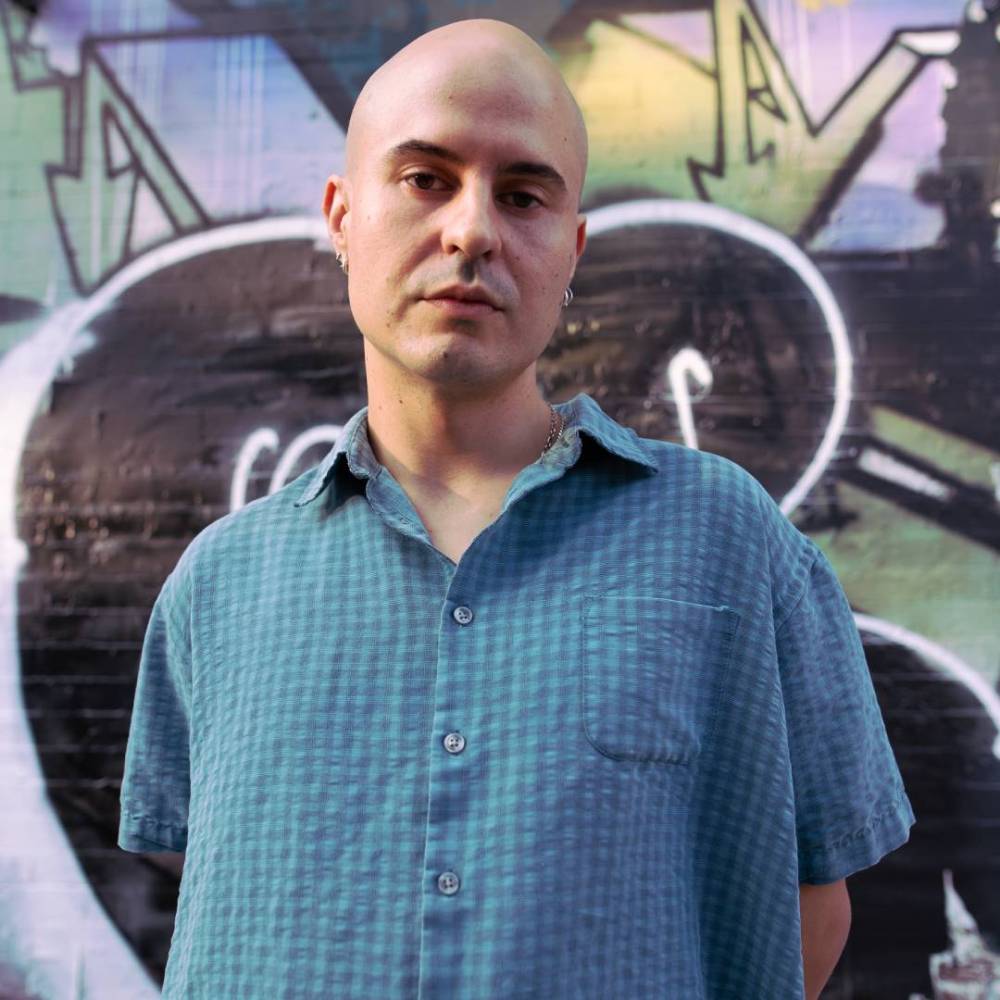Image via Bernardo Illanez
Michael McKinney understands the cultural importance of Kreayshawn’s “Gucci Gucci.”
Daniel Rincon has lived in a hundred different worlds, and he has built a utopia in each of them. The Colombia-born artist—better known as NAP—would hear the sounds of cumbia and merengue floating through his house, but he was interested in rougher stuff: punk, hardcore, no wave. In his childhood, Rincon’s music teacher told his mother that he had an ear better fitted for field artillery than music; when he was a teenager, Rincon’s family moved to Vancouver, and there, he found a way to weaponize that ear. He started going to no wave shows, and he’d DJ parties with busted equipment. It was punk in sound, but more importantly, in practice. He surrounded himself with people who loved making art, and he threw himself deep into Vancouver’s DIY scene.
That focus on community has carried through his work now, even as his people have scattered across the globe and his rolodex has grown exponentially. In 2016, he founded Isla, a quietly essential electronic-music label that makes a point of unpredictability. Spend a few minutes exploring the label’s discography and you’ll get snapshots of the umpteen electronic-music scenes he’s dug into: wiggly trance and disorienting ambiance, brain-bending power electronics and off-kilter acid. The only thing binding them together is Rincon’s focus on collaboration and connection; the label is filled with close friends and peers finding ways to make new kinds of music together. (In this way, Isla recalls 3XL, a similarly insular record label operating at the fringes of ambient music, breakbeats, and mutant pop records.)
In 2022, Rincon moved back south. After moving down to Mexico City in 2022, he’s reconnected with the music of his childhood; he’s dug into the local soundsystem culture and started digging for USBs and CDs at local markets. Just as his music once was explicitly in conversation with the club scenes of Vancouver and Montréal, it is now in dialogue with Mexico City. If you hear him play out, you’re likely to hear him playing the cumbia and merengue records that he swore off as a teenager, folded in between oddball techno, left-field house, and all sorts of nigh-unclassifiable electronics. It’s tempting to slot his music alongside contemporary Latin electronic music—raptor house, reggaetón, digital cumbia—but he subverts any neat categorization. His music is simultaneously hyper-regional and pan-geographic; it piles up the sounds of Colombian boomboxes, Vancouver’s warehouse raves, and CDs pulled from Mexico City’s open-air markets.
Hours before a gig in Minneapolis, we had a chance to connect with Rincon, digging into his relationship to dancefloor utopianism, his roots in punk, how tries to complicate the image of Latin electronic music, how collaboration influences his work, and plenty more.

